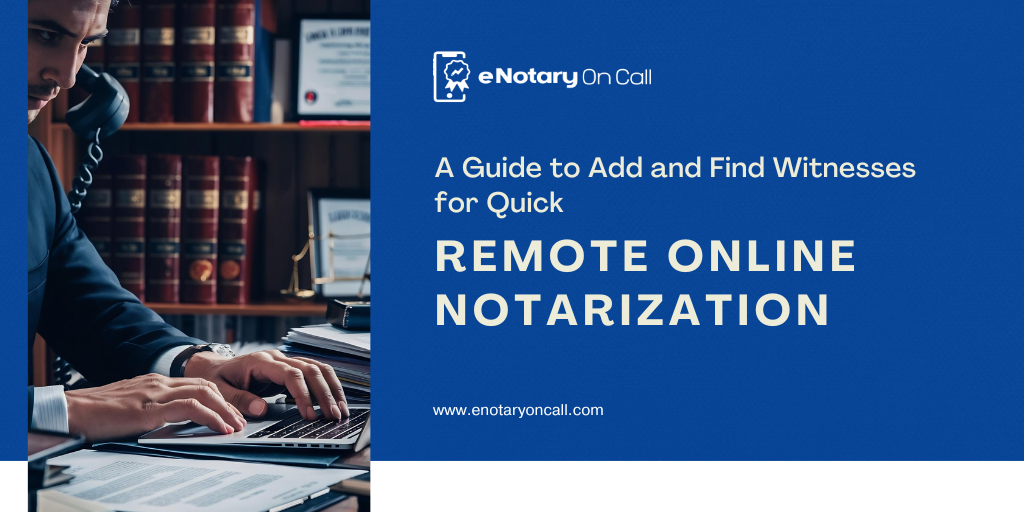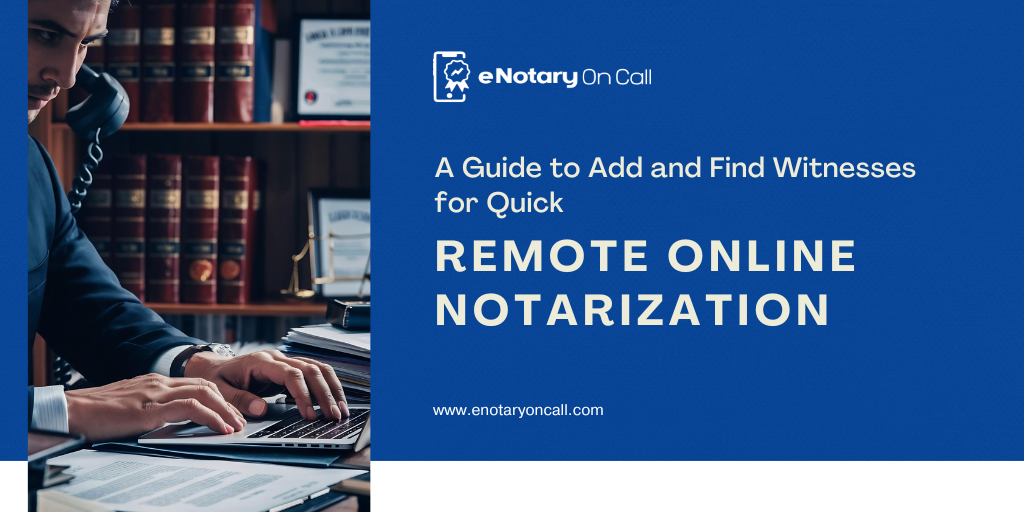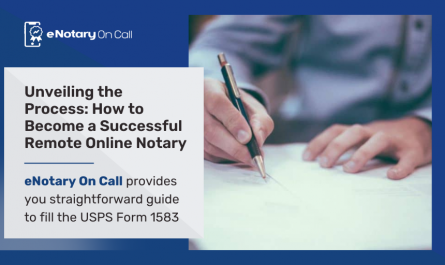
Are you curious about remote notarization, witnesses, legal documents, and more? This blog will help you understand them all.
In the era when any official documents need to be legalized, they need an official signature. It helps to confirm their authenticity and make them a valid and trustworthy record. These papers can be wills or contracts and also forms for power of attorney. Adding a signature to them adds another layer of credibility, eventually leading to the fact that the party was not forced but had an agreement to act accordingly.
This blog will further help the reader as a guide to making a decision regarding the witness’s signatures, where to look for them, and for what documents the witness’s signature is required.
Understanding Witness Signatures
Witnesses play a crucial role in the notarization process by ensuring the authenticity and integrity of signatures on important documents. Their primary function is to observe the signing of the papers and confirm the identity of the signatories. This helps prevent fraud and ensures that the signers are willingly and knowingly entering into the agreement. By attesting to the validity of the signatures, witnesses provide an additional layer of trust and legal assurance, which can be critical in both personal and professional transactions.
Witnesses can be a variety of individuals, often chosen based on their relationship to the parties involved or their professional qualifications. Common witnesses include friends, colleagues, or neighbors who are of legal age and have no direct interest in the document’s outcome. In more specialized cases, professionals such as lawyers, doctors, or notaries themselves may act as them, especially when the documents pertain to legal, medical, or technical matters. Their role is not just to observe but also to lend credibility and reliability to the document being signed.
The extent of their role in notarization goes beyond mere observation. They must ensure that the signatories understand the document’s content and implications before signing. Witnesses might also be required to sign the document themselves, affirming their presence and the authenticity of the signatures. In some jurisdictions, they might need to provide identification and record their details to create a verifiable trail. This comprehensive involvement helps safeguard the legal standing of the document and provides a robust defense against potential disputes or challenges to its validity.
Where Can I Get the Witness Signature?
There are many sources that allow you to get witnesses for the signature. However, it is equally important to know the type of document required and be aware of the legal requirements of your jurisdiction.
The following are a few places that will help in getting the witness’s signature.
Notary Public:
For any legal document, you go to the notary public, also referred to as the legal officer, who acts as a witness and authenticates the signature. This way your documents become validated in banks, law offices, and government offices.
Law Offices And Legal Professionals:
For important papers, the attorney or legal professionals can also be requested as witnesses.
Government Offices:
When primary signers have documents that are related to any public services or civil matter, seeking witnesses at government offices will be the rightful decision. Further, you can also consider community centres.
Online Witness Services:
Nowadays, RON platforms provide virtual witness services where authorized individuals can witness and validate signatures through video calls. It is beneficial beneficial when physical presence is not possible providing relief to signers and notary too in case of emergency notarization.
Specialized Witnesses:
Certain documents necessitate witnesses with specific qualifications. For instance, medical professionals might be required for medical documents or experts in particular fields might be needed for specialized agreements.
Business Establishments:
Some business establishments have authorized witnesses for documents related to their transactions. To ensure legal validity and authenticity, these processes typically involve identity verification, content explanation, signature signing, and sometimes notarization.
It’s important to note that requirements for witness signatures can vary depending on your location and the type of document. Always consult legal professionals or relevant authorities to ensure you adhere to the correct procedures for your specific situation.
Types of Documents Requiring Witness Signatures
Witness signatures are essential for validating the intent, accuracy, and legitimacy of various legal documents, ensuring all parties understand and consent to the terms.
- Wills and Testaments: Confirm valid intent in creating a will.
- Contracts and Agreements: Validate terms to reduce dispute risks.
- Affidavits and Sworn Statements: Affirm truthfulness under oath.
- Power of Attorney Documents: Verify grantors’ understanding and consent.
- Property Deeds and Transfers: Confirm identities and consent in real estate transactions.
- Legal Settlements: Validate agreement in out-of-court settlements.
- Advance Directives: Authenticate healthcare preferences.
- Prenuptial and Postnuptial Agreements: Affirm spouses’ consent to terms.
- Legal Name Changes: Verify genuine intent in name change documents.
- Custody Agreements: Validate child custody terms.
Proper Procedure for Obtaining a Witness Signature
To ensure the legality and validity of your document, follow this step-by-step guide for obtaining a witness signature:
- Choose an Eligible Witness
Select a witness who is of legal age, has no conflicts of interest, and is mentally competent. - Explain the Document
Clearly explain the document’s purpose and contents to the witness. - Provide Identification
Verify the witness’s identity with proper identification. - Read and Understand the Document
Allow the witness to thoroughly read and understand the document. - Witness the Signing
Have the signatory sign the document while the witness observes. - Witness’s Signature and Information
The witness should sign and provide their full name, date, and contact details. - Optional: Notarization
Notarize the witness’s signature if required by legal regulations. - Retain Copies
Keep multiple copies of the signed and witnessed document. - Follow Legal Regulations
Ensure compliance with specific legal requirements in your jurisdiction. - Seek Professional Advice
Consult legal professionals if you have any uncertainties.
Conclusion:
In legal documentation, witness signatures play a crucial role in reinforcing the authenticity and credibility of documents. Ensuring accurate witness signatures requires careful attention to detail, including selecting qualified witnesses, clarifying the document’s content, and following legal standards. Navigating these legal complexities is best done with the help of experts, who can guarantee the validity of your signatures. Whether through notaries, legal professionals, or online services, obtaining witness signatures is always within reach. Protecting the authenticity of your documents is essential for safeguarding your rights. For personalized advice on securing witness signatures and navigating the complexities of legal documentation, consult experienced professionals knowledgeable in legal matters.
FAQ:
Who Can Be A Witness For My Document?
Witnesses should be impartial, of legal age, mentally sound, and not have conflicts of interest in the document.
Do I Need To Notarize The Witness’s Signature?
It is not always required, but notarization adds authenticity to the document.
What Should I Do Before Having Someone Witness My Document?
Ensure document accuracy, choose an eligible witness, explain content, and have proper ID and forms ready.



